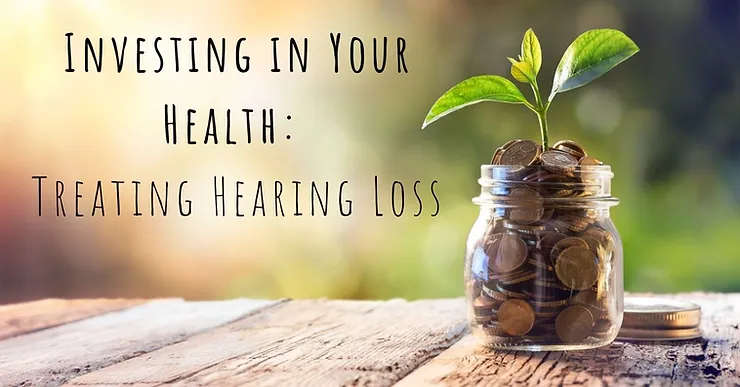
Noise-induced hearing loss is on the rise as one of the most common afflictions for Americans. As many as 17% of teenagers (12-19) already have some amount of hearing loss in one or both ears, and a third of people over age 60 have a life-diminishing amount of hearing loss. Unfortunately, most people wait a long time from the onset of hearing loss to the time when they seek treatment- an average of 7 years.
Why You Shouldn’t Wait
Hearing loss is not like the common vision impairments, near-/ or far-sightedness. If you get corrective lenses for your vision, the world instantly goes from being blurry to being crisp. As we lose our hearing, our brains adjust in many ways we might not even think about. If you’ve been tuning out of conversations for years because you couldn’t decipher speech, when you finally get hearing aids it will take a long time to get used to listening again, even though you can hear speech clearly.
In fact, the centers of the brain that interpret sound can atrophy over time, when they’re not being used as intensely as they are in a person with normal hearing. Perhaps you know people who have hearing aids but don’t use them. Many people react to new hearing aids this way when their lives have become so adjusted to not hearing that they perceive all the new sounds they can hear as annoying. If they were to stick with their new hearing aids, eventually they would adjust to being able to hear again. The sooner upon the advent of hearing loss a person gets hearing aids, the easier and faster this adjustment will be.
Not-Knowing
Some people find themselves with hearing loss after some enormous sonic event, like a bomb going off nearby. But for most people, hearing loss creeps in slowly over time, so that we don’t even notice it. It’s usually another person who let’s us know that we’re experiencing hearing loss, either by pointing out that there are sounds happening that we can’t hear, or complaining that we have the TV too loud, or by pointing out how often we ask them to repeat themselves.
If someone has mentioned that you might have hearing loss, it’s best to get your hearing tested as soon as possible. If they were mistaken, great! And if not, you can start reaping the benefits of hearing loss treatment sooner than later, before serious problems arise.
Health Problems Related to Hearing Loss
As might be apparent, untreated hearing loss is a serious concern that leads to a cascading effect of other health problems. Researchers who study the effects of loneliness and social isolation have tied them to high blood pressure, heart problems, lowered immunity, obesity, depression, anxiety, cognitive decline and Alzheimer’s.
The special danger of hearing loss is that it can make a person lonely even in company. What’s more, hearing loss can damage our existing relationships. In a British study from 2009, 44% of respondents said their hearing loss had caused stress in their relationships with significant others or friends. Some even said their hearing loss had contributed to divorce.
Hearing loss has also been tied directly to cognitive decline and Alzheimer’s, with the severity of hearing loss tied to the severity of dementia. It’s no wonder, since hearing loss reduces the amount of cognitive input we have to work with. That doesn’t just include things that are communicated to us by other people, but all the sounds that we take in and process in the background of our thinking without even noticing it. It amounts to millions of tasks for our brains to do per day, and when we lose our ability to hear we lose all that input.
Another effect of losing that input is a decreased ability to balance. While the balance center of the body (the labyrinth) is not dependent on hearing, our brains also use the auditory input we receive to help us balance more effectively. Studies show that those with hearing aids have better balance than those with untreated hearing loss, and that increased balancing ability helps us to avoid falling down, which can cause a whole host of new problems that, again, can lead to social isolation.
